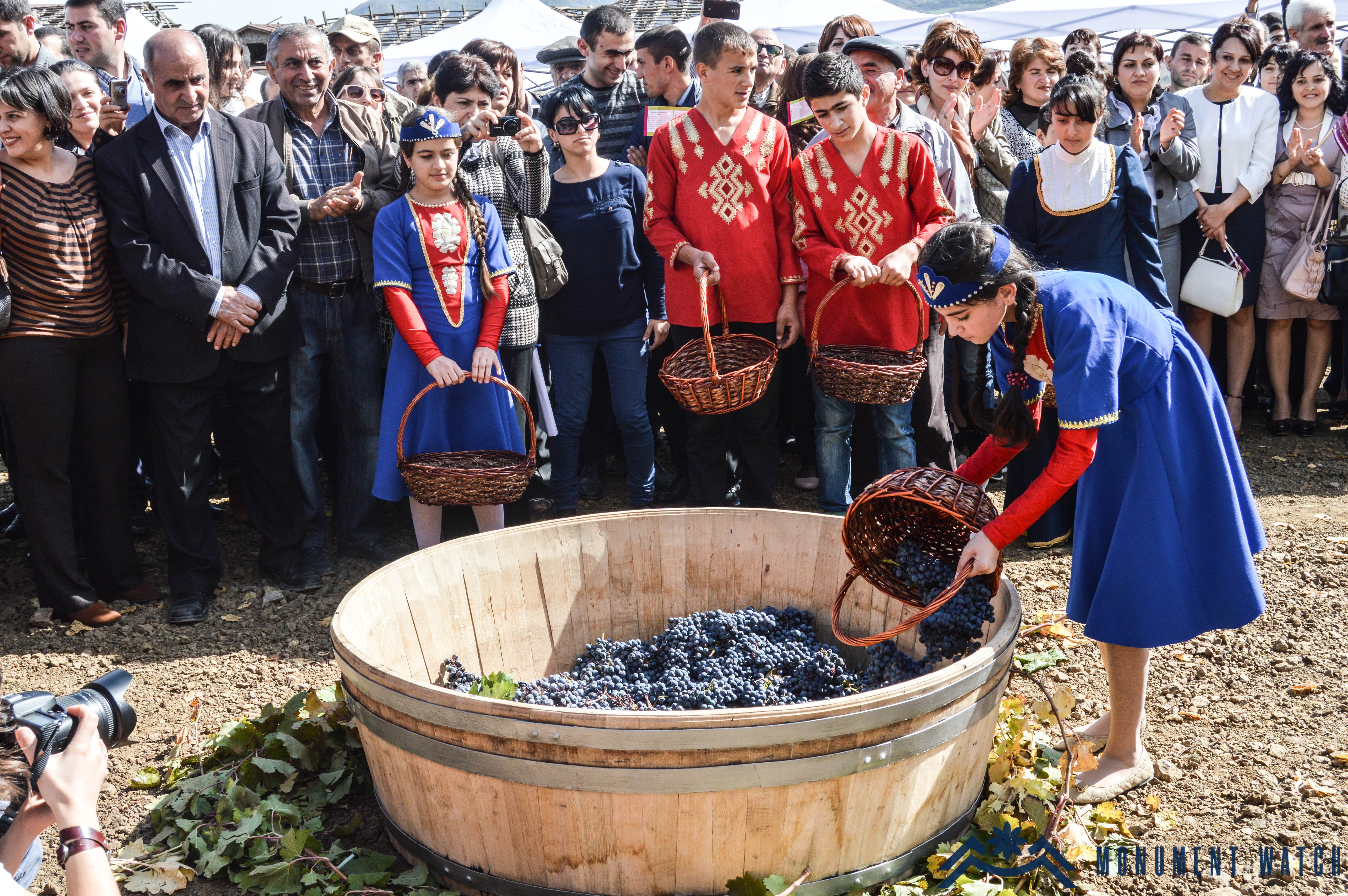
On the International Day of Intangible Cultural Heritage (October 17), Let’s Remember and Advocate for the Lost Cultural Rights of Artsakh Armenians
In November 2023, during its 42nd session, the UNESCO General Conference designated October 17 as the International Day of Intangible Cultural Heritage.
Intangible heritage is passed down from generation to generation, constantly evolving as communities adapt to their environment and interact with nature and history. It plays a vital role in providing communities with a sense of identity and continuity, fostering respect for cultural diversity and human creativity.
Warfare halts the cultural activities of communities, undermining the very cultural foundations that sustain a group's existence. Between 2020 and 2023, the forced displacement of approximately 120,000 Artsakh Armenians from their homeland led to the suspension of the preservation and renewal of Artsakh's intangible cultural values. The disruption of community life among Artsakh Armenians has had a profound and lasting negative impact on their cultural identity. When communities are no longer able to live with their intangible cultural heritage or are displaced entirely, their heritage faces the inevitable risk of disappearing.
The mere physical presence of Artsakh Armenian community members in a different location is not enough to ensure the survival of the community itself. To sustain the vitality of intangible heritage, it is essential to consider the connection between the community and its natural resources.
The disintegration of Artsakh’s cultural communities led to the loss of significant intangible cultural heritage linked to the natural landscape and Artsakh society. This included the actual practice of preparing traditional foods such as ‘zhengyalov-hats’ (herb-stuffed flatbread), kurkut, khashil, arum soup, round gata with Artsakh walnut, and the craft of producing mulberry doshab(syrup) and mulberry vodka. Furthermore, the deportation deprived the Armenian people of Artsakh of the ability to sustain essential non-material craft traditions, resulting in the loss of practices such as local carpet weaving, bread baking, barrel making, woodworking, blacksmithing, and pottery.
Additionally, cultural festivals have been discontinued. The Togh Wine Festival, held annually since 2014 each September at the Togh Melik Mansion, highlighted the traditional and historical practices of winemaking in the region. Similarly, the Pomegranate Festival of Martuni City, in which residents from various Martuni region communities participated, has been lost. Since 2018, the Jengyal Bread Festival in Haterk village of Martakert region attracted up to 12,000 visitors, offering a program that includes the preparation, tasting, entertainment, and sale of jengyal bread alongside other local agricultural products.
Furthermore, the discontinuation of several cultural festivals has resulted in a significant loss of the region's heritage. The Togh Wine Festival, inaugurated in 2014 and held annually every September at the Togh Melik Palace, celebrated traditional and historical winemaking practices. Similarly, the Pomegranate Festival in the city of Martuni, Artsakh, which engaged residents from numerous communities within the Martuni region, has been lost. Since 2018, the Jengyal Bread Festival in Haterk village of the Martakert region attracted up to 12,000 visitors. The festival's program included the preparation, tasting, entertainment, and sale of jengyal bread, along with other agricultural products.
Before the war and the deportation of Artsakh Armenians in 2020, national traditional games such as "Lahti," "Koh," "Cockfighting," "Kashotsi," "Tug of War," and other military and social games remained vibrant, largely due to the festival-competition of national traditional games called "Gupar." This event attracted 250 participants from the regions of Kashatagh, Askeran, Martuni, Martakert, Hadrut, Shushi, and Shahumyan in Artsakh.
Since 2017, international painting symposiums have been organized every year under the title "Colors of Dizak", as a result of which more than 150 paintings have been created, and since 2018, with the efforts of the Art Union "Narekatsi", international pottery symposiums "Brut Art" have been held, creating original values.
The right to culture is intrinsically connected to the ability to actualize intangible cultural heritage. This right is of paramount importance because it safeguards every individual's entitlement to live and develop according to their beliefs, language, knowledge, and customs. Today, it is imperative to recall and reaffirm that all people, including the Armenians of Artsakh, possess the full right to the protection of their intangible heritage as defined by international law—a protection that is currently not being upheld.